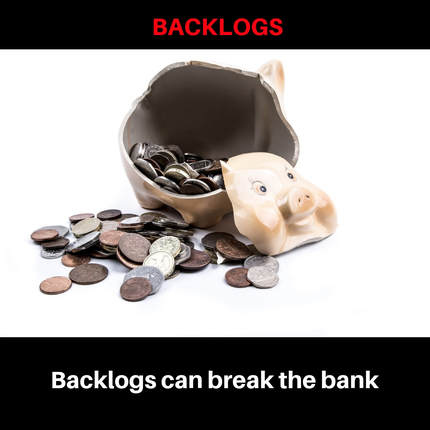 Over the past couple of weeks we have looked at how financial businesses have become more customer focused, but what is the cost internally? Control has been handed over to the customer, many businesses putting most of their energy into attracting customers, providing outstanding service to the person on the street and working hard to retain them. This intense focus has left some gaps in other areas of the business; we have been working with insurers, credit hire organisations and legal representatives. We have found resource has been reduced in building business to business relations and in some instances companies are being up front in relaying the message from above that business to business communication is a low priority for them. This not only causes tension between businesses but also puts a strain on the little resource allocated to this vital area causing disputes, disagreements and backlogs. Comparing the communication at the front end, business to client communications are rapidly dealt with, normally a customer email receiving a response within days, if not hours and telephone calls being managed immediately with outstanding competence. However we noted that business to business, written communications take as little as seven days up to two or three months. On occasion there was no response at all and when following up the communication by telephone, a barrier put up immediately suggesting a back log was preventing a conversation from happening, this surprisingly was with some of the biggest names in the industry.  What is the cost of businesses balancing the focus in this way? Will we experience problems putting all the focus in one area? Can we afford to rob Peter to pay Paul? When can we afford to pay him back? Firstly it can affect team morale; team members working in the unloved area feel the lack of care and as a result can become defensive and dismissive of communication, they lose focus, forget their purpose and before you know it claims and invoices pile up. Nobody can really give answers and the only way to prevent the stack falling over is to bat away anyone who tries to disturb the pile. Everyday submissively carrying out the routine of working from the bottom to the top as it continually gets heavier and more unstable. Secondly the more backlog a company holds the more at risk they are of feeling a financial pinch, more money will be needed for resource to ever have any chance of catching up. Files and papers have to be touched more, skills are being wasted on excuses, justifying a lack of response and action, reassuring people they’ll get there... one day. Suddenly cash is being lost on defending poor work, paying penalties, interest and potentially litigation and legal fees to mitigate the damages caused by chasing our own tails. Unfortunately there aren’t many positives to having backlogs, it’s a red flag demonstrating that businesses are not managed well. For employees it feels like endlessly treading water to avoid drowning and it becomes exhausting not knowing when you might be thrown a lifeline. The backlog becomes a motorway with only one lane open, multiplying in length as we slowly filter through the bottleneck. One of the most successful ways to avoid backlog is pre-planning or having a contingency plan in place for busy periods. Solutions include recruiting more team members or agency staff to manage the workload or to employ an outsource company to take overflow. There may also be an opportunity to have a partnership in place to manage time consuming tasks such as validating invoices, business to business communication and/or negotiating payments. Understandably it is challenging to pre-plan in some financial sectors which can suddenly be thrown into panic with factors out of our control or events which could never be predicted, but having no contingency plan at all can snowball a business into chaos. We have also seen good practice, having agreements set up or operational protocols where businesses collaborate to set out specific criteria and clear guidelines as to what communications will be, what they need to include for a swift transaction to reduce delays and avoid hitting a backlog. Other incentives can and do include business to business discounts for prompt settlements, where businesses can make maximum savings on resource (less team member touch points) and the invoice itself. It’s interesting to weigh up the pros and cons for businesses to manage their files, claims and invoices effectively. Delaying payments out may mean more cash in the bank right now, it may also mean there is more time to pick at bones and negotiate lower outgoings but do these tactics increase the payroll bill and can justifiable invoices be magnified with penalties and potentially legal fees? In the financial industry there can be strength through collaborating, as we discussed in our previous blogs, businesses in other sectors are becoming smarter, working together to reduce friction and to benefit from support within the sector they are based. This in turn is having an impact on working cultures, we are more relaxed, teams are working together better towards a common goal and building external relationships with potential business partners. This is all having a positive impact on the businesses’ reputation; opening more doors for collaboration and enjoying the benefits of positive business to business interactions with a stronger sense of security being a fair player within the sector they compete. For more information on our solutions, click here.
3 Comments
8/9/2019 05:17:55 pm
How long are things going to be like this. I am tired of waiting. It seems there really is nothing wrong with how I feel but the world is making it very difficult for me to express it. I wish I can be easily moving around towards people and places I love dearly. I feel like I am in a cage and I am not just living a lie. I am living a very ugly lie. I know who I want. I know where I want to be. I am not in that place. I am never free. I sound like I am singing and it's true. Maybe I'd rather just sing the blues than hurt myself for not seeing you.
Reply
5/4/2024 05:59:12 am
Individuals can express themselves with confidence and authenticity, showcasing their true essence with every sparkle and shine. Diamond jewelry holds a special place in bridal traditions, serving as symbols of love, commitment, and unity.
Reply
Leave a Reply. |

